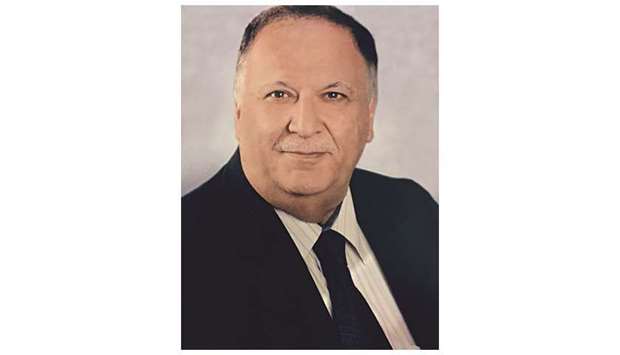As part of the ongoing expansion across Hamad Medical Corporation (HMC), a number of new services and facilities will be implemented at Al Wakra Hospital in the coming years, said an official.
Dr Sabah Alkadhi, medical director of Al Wakra Hospital, said planned service upgrades and facility expansions are part of a larger strategy designed to enhance patient experience and reduce waiting time and length of stay.
Dr Alkadhi said Al Wakra Hospital is continuing to expand services and future plans include the commissioning of a new CT scan, the establishment of a Center of Excellence for Stone Treatment, and the expansion of a number of existing services, including rehabilitation, dermatology, arthritis and rheumatology. He said there are also plans to establish a Blood Donation Center in Al Wakra.
During the last two years, Al Wakra Hospital has seen over a 15% increase in patient volume with a total of 699,496 patient visits in 2018, compared to 605,924 in 2016. With over 280,000 outpatient and more than 355,000 Emergency Department visits in 2018, Al Wakra Hospital is the country’s second busiest hospital, behind only Hamad General Hospital.
Last year more than 8,970 patients, including paediatric patients, benefited from inpatient surgical services at Al Wakra Hospital, including obstetric, gynaecologic, and burns surgeries. Nearly 17,500 patients utilised day care services, including over 6,200 patients undergoing day surgery. In 2018, 1,257 patients underwent dialysis and 9,945 received intravenous therapy. During the same year, over 5,600 babies were born at the hospital.
Opened in 2012, and serving a local population of approximately 500,000 people, Al Wakra Hospital was established to meet the increasing demand for health services in the rapidly growing communities of Al Wakrah, Mesaieed, and the South Doha Airport area.
“Al Wakra Hospital has 326 inpatient beds, 204 of which are for general and acute patients and 87 of which are reserved for critical care, high dependency, and burns patients. We have an additional 77 beds for observation and day care patients. Approximately 30 percent of our beds are in single occupancy rooms,” said Dr Alkadhi.
Dr Alkadhi noted that the number of staff working at the hospital has increased by over 9% during the last three years, with a 40% increase in staff hired to support clinical services since 2016. He noted that nursing and midwifery staff increased by 15% and allied healthcare staff by 6% during the same period.
“The increase in our workforce has helped reduce waiting times in outpatient clinics. Waiting times for outpatient services were reduced by 27% during the first quarter of 2019 compared to the same period in 2017. These reduced wait time represent appointment bookings in 19 medical
specialities,” said Dr Alkadhi.
Dr Alkadhi noted that as part of HMC’s response to managing the healthcare requirements of Qatar’s growing population, a number of key clinical services have been relocated to Al Wakra Hospital in recent years, including the country’s National Burns Unit. The modern, purpose-built facility, which was relocated from Rumailah Hospital in 2014, uses the latest equipment and techniques to treat both severely burned patients and those with minor burn-related injuries. Dr Alkadhi said other recent additions include a robotic surgery service for general surgery and urology, Qatar’s only dedicated Hernia Surgery Center, the country’s first of its kind specialised dental clinic for individuals with special needs, and countrywide collaborative dermatology, dentistry, diabetes, neurology, mental health, and cardiology services.

Dr Sabah Alkadhi, medical director, Al Wakra Hospital.
